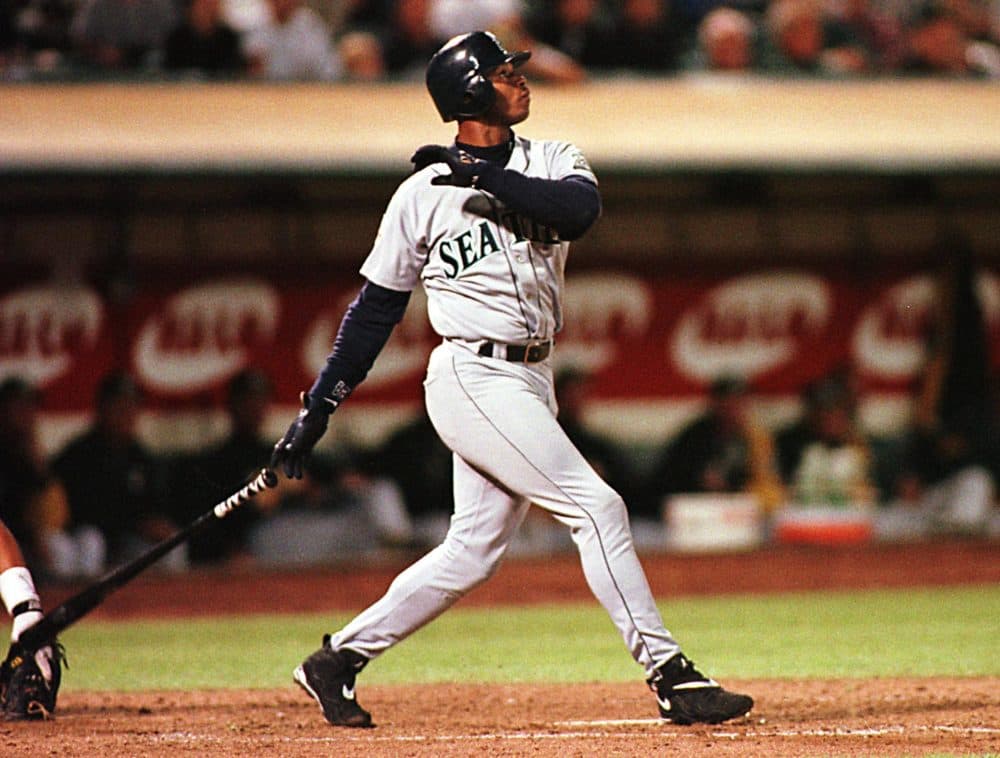Advertisement
Black Players In Baseball Make Up Less Than 10% Of The Sport Today. Why?
Resume
Black participation in Major League Baseball has declined for years — and The Washington Post spent this baseball season trying to understand why.
In the 1970s, Black baseball players made up about 20% of MLB. Today, that number has dropped to nearly 8%.
The Post launched a project called “The Nine” centered around the profiles of nine legendary baseball players. Chelsea Janes, national baseball reporter and a writer on the project, says a reason for the decline in participation is the timeline of becoming an MLB player.
“A lot of Black kids looked up and saw stars in the NFL and NBA who come right out of high school or right out of college and are suddenly on national television,” Janes says. “And in baseball, that just doesn't happen.”
The money and the fame doesn’t come right away for baseball players, Janes says. It’s a tougher road for athletes because they often spend five years in the minor leagues before reaching their big breakthrough.
And fewer Black players means fewer Black people in leadership roles, Janes says. It’s always been largely white men who get hired to run baseball. She says one reason is that the sport requires a lot of travel, which costs more money.
“If you don't have the money, you don't get the exposure and you don't get the scholarships,” Janes says. “It’s also a sport that's harder for poorer families to be a part of and so Black kids in those circumstances are having trouble kind of breaking in.”
The MLB is disappointed in the decline of Black players, an issue the league has started to take very seriously, Janes says. The league created the Hank Aaron Invitational, where the best Black players in the country work with major league coaches and players.
The MLB also made a major 10-year contribution to The Players Alliance — a social justice program focused on improving the participation of Black athletes in baseball, she says. However, she argues that change won’t come until the league starts consciously hiring Black general managers.
“There's two Black managers in baseball out of 30 teams,” Janes says. “And I think there's a lot of people that look at that as a serious problem too.”
Baseball fielder Willie Mays is one of the nine players featured in the project. Since he wasn’t the first Black player in the league, Janes says he didn’t experience the inundated racism a Black player like Jackie Robinson did — so people forget Mays experienced racism at all.
“This is a guy who had to start his career in the Negro Leagues. He was not allowed to play in the major leagues,” Janes says. “A few years later he's a star loved by people of all races and it’s important to realize that that didn't happen overnight. It didn’t fix everything for him.”
Mays was the first Black player that white Americans adopted as their own, Janes says, and he didn’t bring up racism often. This created tension with Robinson — who broke a color barrier in the sport — because Robinson felt they had to be icons of racial justice.
Mudcat Grant was another baseball player who unapologetically stood up against racism, she says. At a game in 1960, Grant protested the national anthem. One coach became so furious he began yelling racial slurs at Grant until the pitcher punched him in the face.
“He was a real groundbreaker in terms of athlete activism,” Janes says. “He was sort of one of the first Black athletes to understand what that platform could do and he made people talk about it.”
Grant served as a template for a new kind of athlete who represented a fearlessness that people see in many of his successors today, she says.
Former baseball player Ken Griffey Jr. was hired as a consultant for the MLB to help re-create a system for Black players. When Griffey Jr. was younger, he had role models like his father who made him feel he belonged in the game — a support base he believes Black players don't have today, Janes says.
“He’s trying to sort of tap into his network and say, ‘How can we get these kids in front of … former major leaguers and make them feel like there's people that came before them and that they belong here?’ ” Janes says.
Baseball used to be a staple of Black culture and an integral part of life in Black communities, she says. She hears stories from people who used to go to church with their families, stop for lunch and then go enjoy a baseball game.
“I think [what] was lost is sort of a connection to a very real and vivid and rich history,'' Janes says. “A game without Black players now — or with 7% Black players — it's not necessarily a representation of this country as a whole, and not what the sport was and could be.”
Alexander Tuerk produced and edited this interview for broadcast with Tinku Ray. Camila Beiner adapted it for the web.
This segment aired on August 27, 2021.